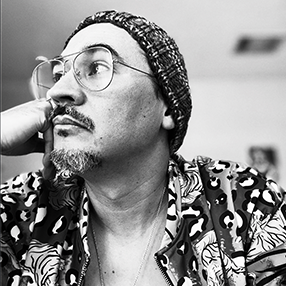A Pile of Fish
for Paul Otremba
Six in all, to be exact. I know it was a Tuesday
or Wednesday because the museum closes early
on those days. I almost wrote something
about the light being late—; the “late light”
is what I almost said, and you know how we
poets go on and on about the light and
the wind and the dark, but that day the dark was still
far away swimming in the Pacific, and we had
45 minutes to find Goya’s “Still Life with Bream”
before the doors closed. I’ve now forgotten
three times the word Golden in the title of that painting
—and I wish I could ask what you think
that means. I see that color most often
these days when the cold, wet light of morning
soaks my son’s curls and his already light
brown hair takes on the flash of fish fins
in moonlight. I read somewhere
that Goya never titled this painting,
or the other eleven still lifes, so it’s just
as well because I like the Spanish title better.
“Doradas” is simple, doesn’t point
out the obvious. Lately, I’ve been saying
dorado so often in the song I sing
to my son, “O sol, sol, dorado sol
no te escondes ...” I felt lost
that day in the museum, but you knew
where we were going having been there
so many times. The canvas was so small
at 17 x 24 inches. I stood before it
lost in its beach of green sand and
that silver surf cut with pink.
I stared while you circled the room
like a curious cat. I took a step back,
and then with your hands in your pockets
you said, No matter where we stand,
there’s always one fish staring at us.
As a new father, I am now that pyramid
of fish; my body is all eyes and eyes.
Some of them watch for you in the west
where the lion sun yawns and shakes off
its sleep before it purrs, and hungry,
dives deep in the deep of the deep.
Copyright © 2020 by Tomás Q. Morín. Originally published in Poem-a-Day on September 18, 2020, by the Academy of American Poets.
“Paul Otremba passed away in 2019, but not before leaving us with Levee, one last brilliant book of poems. Among the many things we had in common was a love of Elizabeth Bishop, cats, and gourmet meals. Paul loved cooking and eating exquisite food, and I, well, I just loved eating it, especially when he was making it. There's nothing I can say about the poem that isn't obvious. We all miss you, brother."
— Tomás Q. Morín

